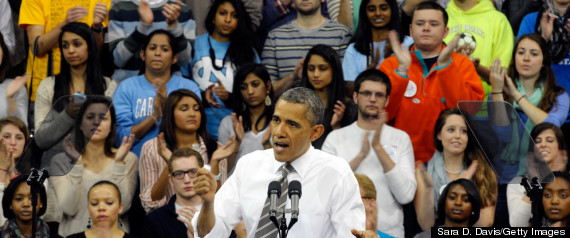Posted: 08/21/2013
Young adults, especially those with low incomes who will qualify for financial assistance, have poor awareness of health insurance options that will be available under President Barack Obama's health care reform law, according to survey findings published Wednesday that underscore the challenges facing Obamacare.
Just 27 percent of people ages 19 to 29 had heard of the health insurance exchange marketplaces, where people who don't get coverage at work will be able to shop for insurance plans and learn whether they qualify for subsidized benefits, the Commonwealth Fund poll of almost 1,900 people between November 2011 and March 2013 reveals. Awareness was even lower among people who were uninsured during part of the prior year and whose incomes will make them eligible for help, at19 percent and 18 percent, respectively.
Understanding of the health insurance exchanges and the rest of the law may have improved in the months since the survey as the focus on young adults and health care reform has intensified, said Sara Collins, vice president of affordable health insurance at the Commonwealth Fund and author of the report.
"If you were to ask the question now, you might get a higher share of young adults saying that they're aware of the marketplaces," Collins said. Not only has Obama and his administration emphasized the importance of young adults to the law's success, but states such as Oregon have launched outreach and advertising campaigns targeted toward younger people, she said.
The White House, allied outside groups, states implementing the law and health insurance companies are beginning an aggressive push to target younger people. The Obama administration aims to enroll 7 million people into health insurance via the exchanges for 2014 and calculates 2.7 million of them should be young and healthy to ensure a stable pool of people covered in these plans so that medical costs for sicker people don't overwhelm the system.
The Obama administration needs a substantial number of young adults to sign up for health insurance plans through the state-based exchanges that will begin a six-month enrollment period on Oct. 1 for coverage that takes effect as soon as Jan. 1, according to the Commonwealth Fund report.
"Young adults' participation in the nation’s new insurance marketplaces is essential: as a healthier-than-average population, it allows for comprehensive health plans to be offered at affordable prices to all enrollees over time. However, concern is widespread that young adults will continue to go uninsured, despite the new options available to them under the law," the Commonwealth Fund report says.
The premiums collected from people with lower health care costs will serve to offset the higher medical expenses of older, sicker people. Further complicating the task of persuading young adults to participate is that some will face higher prices than are available on today's health insurance market, which doesn't guarantee benefits on par with Obamacare's and permits insurers to exclude older, sicker people and charge younger healthier people less.

Although some portion of the population of young adults who buy health insurance on their own -- rather than obtain it at work or via a government program like Medicaid -- may face "sticker shock" when they review their options on the health insurance exchanges, many will receive helping paying for their coverage.
Under the law, people who aren't offered affordable health insurance by their employers may choose plans via the exchanges in their states. Anyone earning between the federal poverty level, which is $11,490 for a single person this year, and four times that amount is eligible for tax credits to defray the cost of coverage. In addition, people with incomes up to 133 percent of poverty, or $15,282 for an individual this year, can enroll in Medicaid if they live in the District of Columbia or one of the 23 states expanding the program under Obamacare. The law's individual mandate also requires most people to obtain some form of health coverage.

Furthermore, the Commonwealth Fund reports that 82 percent of the estimated 15.7 million uninsured young adults earn less than four times the poverty level, qualifying them for subsidized coverage.

"With aggressive state and federal efforts to educate young adults about their new insurance options, experience suggests that awareness of, and enrollment in, these new options will climb over time. Affordability will also be critical," the report says. Similar to other recent findings, the survey shows that young adults turn down job-based health benefits more often because of cost than because they believe health insurance isn't necessary.
As evidence that Obamacare can attract enough young people, the Commonwealth Fund cites high levels of enrollment among young adults when Massachusetts implemented a similar program in 2007 and rising numbers of young adults covered by their parents' health plans after 2010, when the health care reform law began requiring insurers to accept adult children until they turn 26.

No comments:
Post a Comment